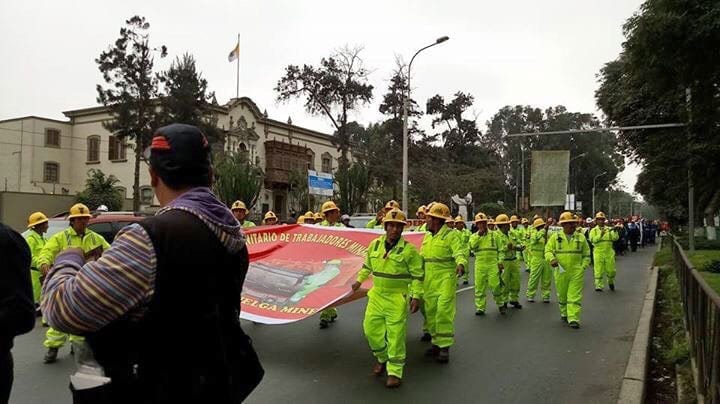Talks between Peruvian mineworkers and the Ministry of Labor over proposed labor law reforms came to a standstill after the government began retaliating against workers who took part in a recent nationwide strike, despite promises not to do so, according to the National Federation of Mining, Metallurgical and Steel Workers of Peru (FNTMMSP).
The government and FNTMMSP agreed to a monthlong series of negotiations after mine workers from 56 unions in Peru went out on an indefinite, nationwide strike July 19 to protest the government’s proposed reforms to loosen workplace safety rules, make it easier to fire workers and shift the burden of paying into an unemployment fund to workers from employers.
The director of the Peruvian Labor Ministry contacted each company where workers went on strike to clarify that the strike was illegal, a move that could result in discipline or dismissal of the workers involved—and could send a warning that “workers do not dare in the future to exercise our right to strike,” according to the union.
“We call out the mining employers who, seeking to intimidate miners throughout Peru, have sent notarized letters to workers who participated in the struggle challenging their inalienable labor rights to do so. We respond with firmness: We know our rights—such as the right to strike, and we know when the employer violates labor laws, does not comply with collective bargaining agreements, and excessively abuses the labor rights of its workers,” FNTMMSP says in a statement.
Although the right to strike is protected under Peruvian law, the freedom to strike is restricted. The government declared the mineworkers’ strike out of compliance with legal requirements, as it does for most major strikes. The Mineworkers Federation has appealed the determination.
“If the dialogue is not resumed and the signed agreements are not fulfilled, we will take measures necessary to enforce our rights, which are also the rights of all the workers of the country,” FNTMMSP says.
“If there is no solution, the strike continues.”

